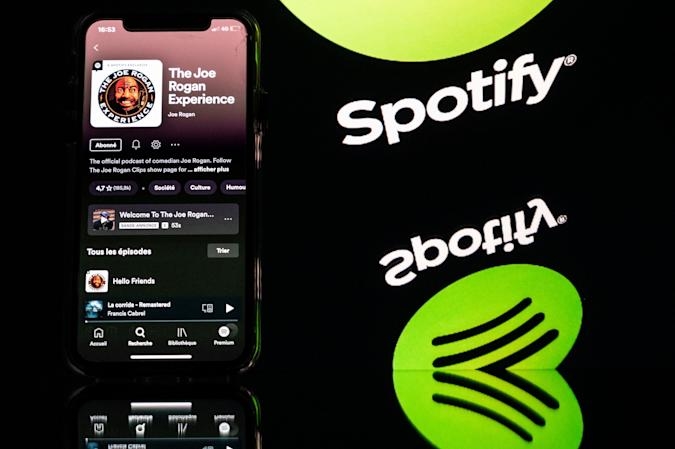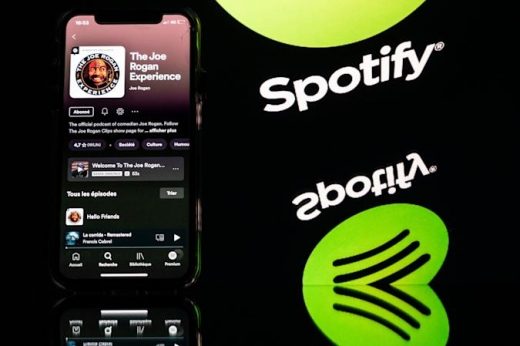Spotify deletes over 100 ‘Joe Rogan Experience’ episodes
In the Joe Rogan debate, Spotify is acting like a spectator rather than a player
Regardless of what CEO Daniel Ek says, the company bears responsibility for the podcasts it publishes.


The Joe Rogan Experience was problematic long before Spotify paid a reported $100 million for exclusive rights to the show in 2020. Rogan’s tendency to let guests disseminate hideous and demonstrably false viewpoints has attracted criticism before, but as with many things, the COVID-19 pandemic has pushed the controversy to new heights in recent weeks. On December 31st, Spotify published an episode of The Joe Rogan Experience in which virologist Dr. Robert Malone likened the belief that vaccines are effective to “mass formation psychosis.”
A few weeks later, 270 doctors, nurses, scientists and educators sent an open letter to Spotify asking the company to adopt a clear misinformation policy to help curb the spread of dangerous false claims, like those made in that episode of The Joe Rogan Experience.
Over the last few weeks, the backlash to Rogan’s podcast has come from others on the platform. Several high-profile musicians, including Neil Young and Joni Mitchell, pulled their music from Spotify over the platform’s dissemination of misinformation. Spotify’s Science VS podcast also announced this week that it would only produce episodes that fact-check misinformation spread on the platform until the company made a stronger effort. Author and researcher Brené Brown has paused her Spotify-exclusive podcasts Unlocking Us and Dare to Lead as well.
Rogan and Spotify haven‘t seen a response of this magnitude before, and it shows no signs of abating. Indeed, several of these artists and podcasters chose to remove their content after Spotify publicly shared its content guidelines and announced a plan to add a “content advisory” to any podcast that discusses COVID-19.
In many ways, what Spotify is grappling with right now is the same thing social media platforms like Facebook and Twitter have had to confront over the last five years. They’re so big that they need to have guidelines around what people post, and accept some degree of responsibility for how they disseminate information. Spotify needs to do the same thing, with the added wrinkle that there’s no gray area: By paying artists and podcasters to appear on its platform, the company has a responsibility for the content it puts out. Of course, it’s not clear Spotify sees it that way.
Instead of simply being a podcast player, Spotify has a host of exclusive deals and owns major podcasting studios including Gimlet Media and The Ringer. These financial entanglements mean Spotify has to make tough decisions about how much of a voice it wants to give to potentially objectionable creators like Joe Rogan. As Ashley Carman of The Verge notes, Apple delisted Alex Jones’s Infowars show from its podcasts app, but people could still find his show and listen to it through RSS. But The Joe Rogan Experience is part of an increasingly common closed podcast ecosystem — and any company that participates in such a system could have similarly difficult decisions to make about what creators say on those platforms.
Spotify’s response to this controversy has been tepid at best. The content guidelines the company published say nothing about spreading misinformation on the platform, and the COVID-19 content advisory draws a false equivalency between legitimate discussion and incorrect information. It’s hard to imagine these moves doing anything to quell the backlash any time soon.
And that backlash is now coming from Spotify employees, as well. The Verge viewed screenshots from Spotify’s internal Slack that showed the company said it reviewed all episodes of Rogan’s podcast and found that none met the threshold for removal. This was a response to Spotify employees reportedly being “vocally upset” about Spotify’s deal with Rogan and his view on vaccines. And earlier today, Carman and The Verge once again published details of an internal Spotify meeting where employees voiced their concerns and where Ek defended his decisions, including Ek insisting that Spotify is simply a platform, not a publisher.
“Everyone’s a little upset, especially the people whose initiatives directly contradict what’s happening,” a source who asked to remain anonymous told Carman. “People are feeling increasingly frustrated that no matter what the company says messaging-wise, or no matter what people’s initiatives are, it all kind of ladders up to, ‘What’s the best for Joe Rogan and Joe Rogan’s audience?’”
Ek continued to defend Spotify’s relationship with Rogan today, saying that “exclusivity does not equal endorsement,” (n.b.: paying money to support something is literally endorsing something) and saying that exclusive deals like the one the company cut with Rogan are what’s helping keep the company successful. “To be frank, had we not made some of the choices we did, I am confident that our business wouldn’t be where it is today,” Ek reportedly said.
It’s hard to imagine Spotify turning its back on Rogan. The Joe Rogan Experience remains an exceptionally popular show, and Spotify made its feelings about Rogan clear when they backed up a dump truck full of cash to have exclusive rights to the show – and they’ve been steadfast in their defense of him since then. The company knew he was a controversial figure before, and he’s so popular that someone else would surely open their wallets for his show if Spotify decided to cut him loose.
It’s not impossible that Rogan could do something that would cause Spotify to change its stance. After all, Facebook and Twitter eventually banned the former president of the United States after putting up with years of lies and dangerous rhetoric. And Twitter recently banned Georgia representative Marjorie Taylor Greene for spreading COVID-19 misinformation. But it’ll take a lot more than Neil Young and Joni Mitchell pulling their music catalogs to make Spotify change course, given its financial investment in Rogan. If Rogan or a guest on his show called for an insurrection at the US capitol — that might move the needle. But short of that, it seems likely that Spotify will likely wait for this current storm to subside and simply move on with the status quo.
(79)


